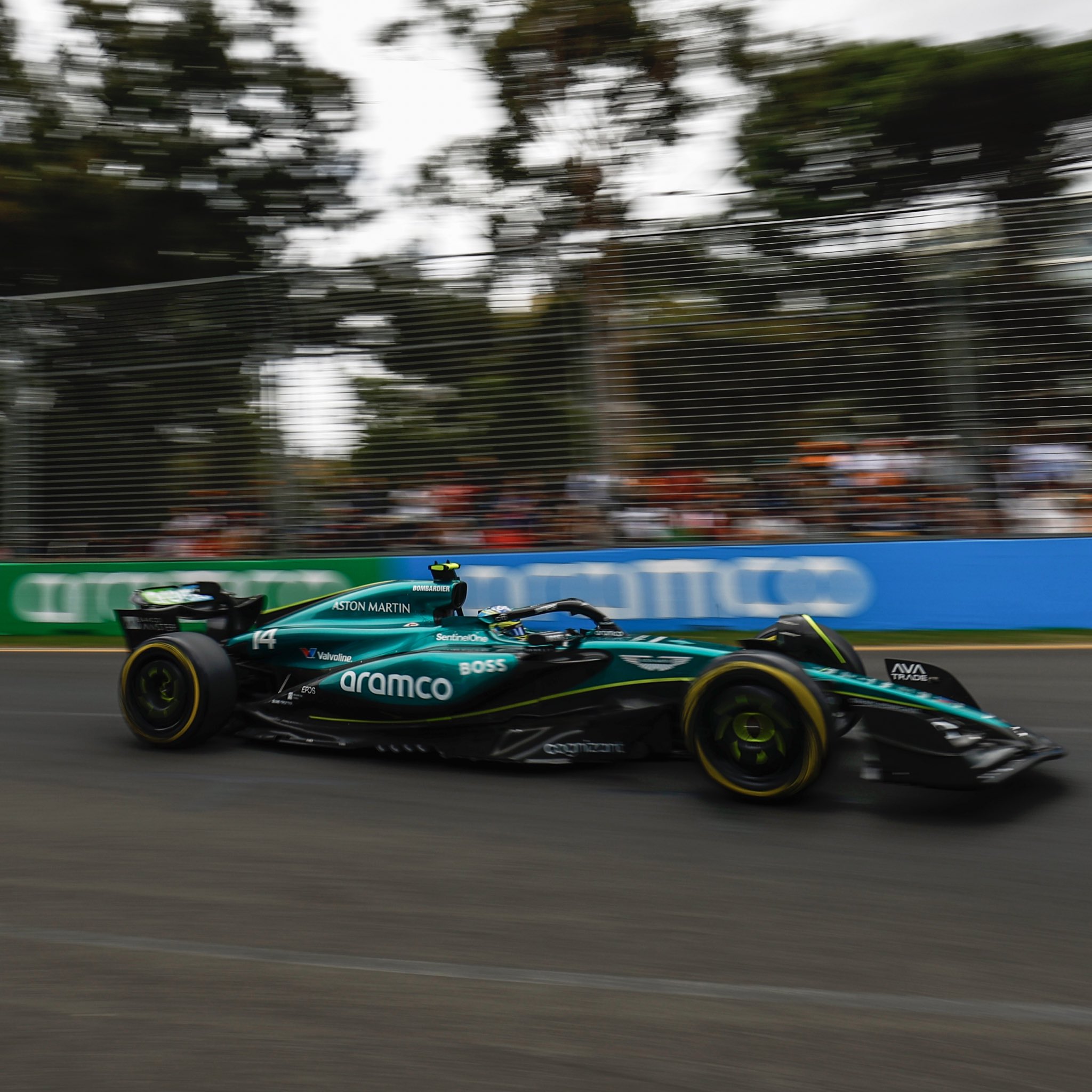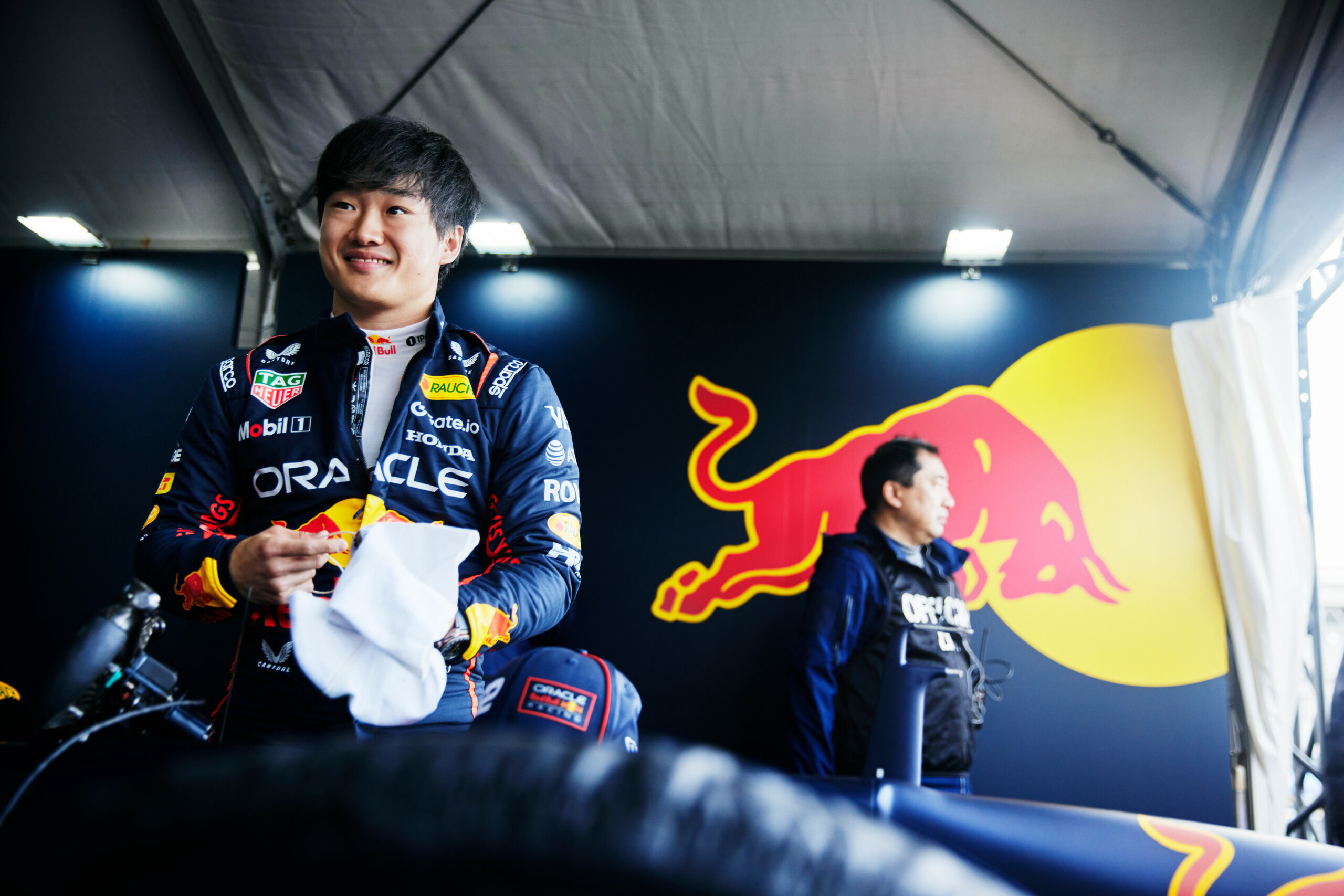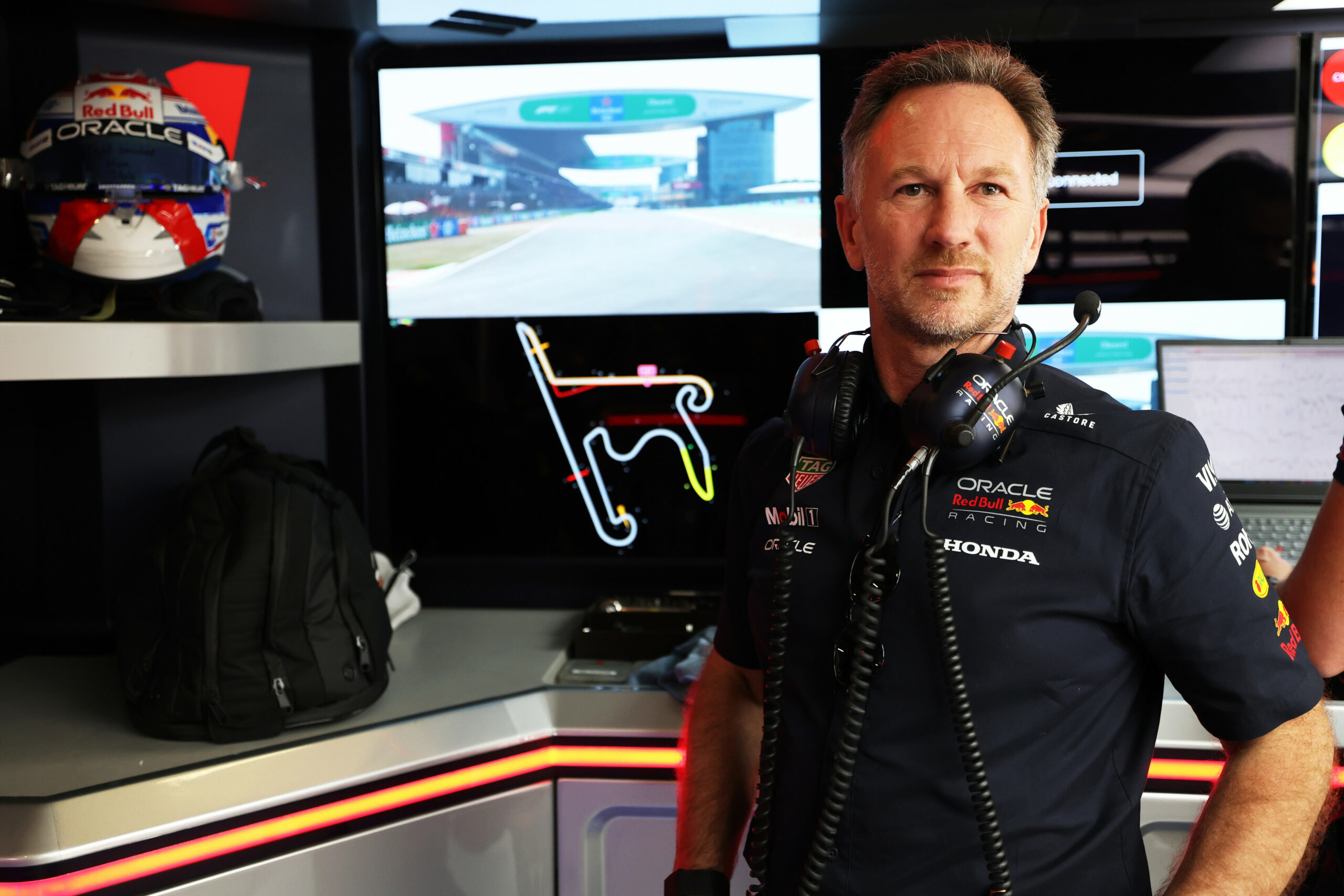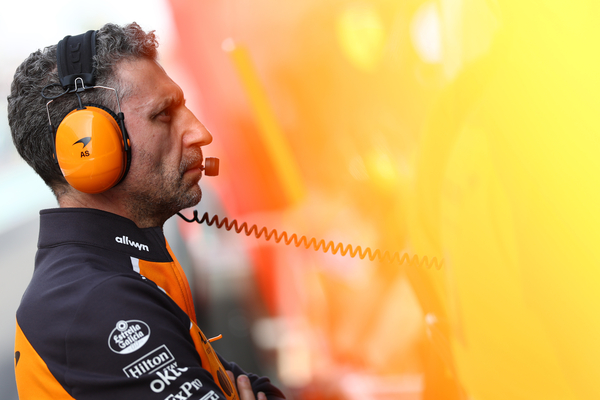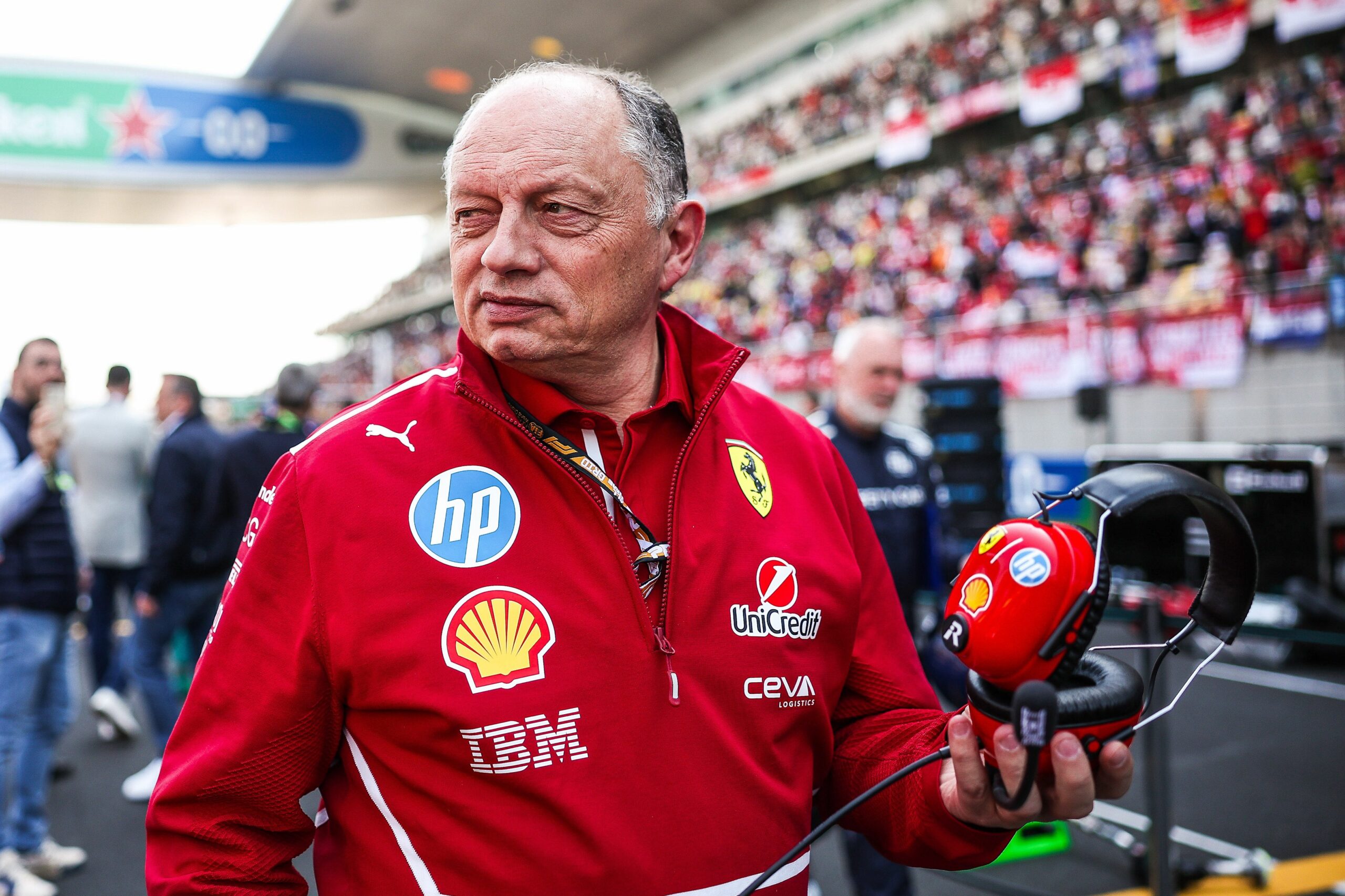Fernando Alonso believes such was the “surprising” and “strange” nature of his penalty for “potentially dangerous” driving at the final lap of the 2024 Australian GP – in turn causing George Russell’s massive shunt -, that it will “never” be seen again in the future. He also discussed how it will not change how he goes about his racing.
The two-time world champion was given a hefty 20-second time penalty (the equivalent of a drive through) for his erratic driving on the final lap of the race in Melbourne, when he braked over 100 metres earlier than at any other point during the grand prix, and then re-accelerated again before slowing down for a second time as he approached the fast right-hander of turn six. This caught Mercedes driver George Russell by surprise, and sent the Mercedes straight into the barriers on the outside of the corner.
The stewards deemed the Spaniard’s actions were “extraordinary”, and not a mistake, thus giving him an even harsher penalty than the usual 10-second punishment. This obviously caused large controversy on the paddock and on social media over the following days and weeks since the race.
Speaking to the media for the first time since the incident, Alonso said that whilst it’s “clear” for him what happened and why it shouldn’t have been penalised – given it was, by his own words, a common motorsport practice – he firmly believes the penalty will be a one-off and “never, ever” be applied again should a similar incident happen in the future:
“It was clear and I think it’s still clear [what happened],” he said. “It was a bit surprising, the penalty in Melbourne, but nothing we can do. We have to accept it and move on and concentrate on here.
“I think it will not change much on how we drive, how we approach racing. There is no obligation to drive 57 laps in the same way. Sometimes we get a slower pace to save fuel, to save tyres, to save battery.
“Sometimes we get slow into corners or into some sectors of the track to give the DRS to the car behind because that will be a useful tool if the second car behind is at a faster pace. So all those things are completely normal. It was, it is and it will be forever in motorsport.
“We had one penalty, probably one-off, but we will never apply ever again. It was for us, we take it, we accept it. We lost two points or whatever it was for the team.”
Whilst the principle of any penalty applied during the race weekends is that it’s based around the actions and not its consequences, the Spaniard “100%” believes he would have gotten away with it if the run-off was different and Russell didn’t have a spectacular shunt:
“100%. If he was in Abu Dhabi with a run-off area in asphalt or whatever, I think George will rejoin the track a few metres after that and will try to have a go on me on the following lap or in the following straight. It will not be any problem.
“It was the hardest penalty of the season, I think, in terms of time-lapse. Which is strange. The fact was to get penalised.”
When asked about the situation, Russell was of a completely different opinion – as you’d come to expect – saying the penalty was important to set a precedent in order to avoid drivers doing manoeuvres to get a “tactical advantage” in a dangerous manner:
“I think it was obviously a strange situation that happened last week,” said Russell. “As I said at the time, [I was] totally caught by surprise.
“I was actually looking at the steering wheel making a switch change on the straight, which we all do across the lap, and when I looked up I was in Fernando’s gearbox and it was too late and then next thing I know I was in the wall.
“So, I think if it were not to have been penalised, it would’ve really opened up a can of worms for the rest of the season and in junior categories.
“Of saying, ‘Are you allowed to brake in a straight, are you allowed to slow down, change gear, accelerate, do something semi-erratic?’
“I don’t take anything personally with what happened with Fernando and it probably had bigger consequences than it should have.
“But if it went unpenalised, can you just brake in the middle of the straight? I don’t know.”
Interestingly, whilst Alonso believes the penalty will definitely not set a precedent for the future, Russell thinks the exact opposite.
Despite admitting he didn’t think the Spaniard’s driving was “extraordinarily dangerous”, the one-time grand prix winner said it could create dangerous situations in the future if erratic driving were to be allowed.
“[But] when we start braking in the middle of the straight, downshifting, accelerating, upshifting again, then braking again for a corner, I think that goes beyond the realms of adjusting your line.
“And, as I said, I was actually looking at my steering wheel in that straight – as I’ve done every single lap prior.
“And when I looked up 100m before the corner, I realised I was right behind Fernando, rather than the half a second that I was.
“We’ve got so many duties to take care of when we’re driving – going around the race track, changing all the settings on the steering wheel, making sure you’re in the right engine mode, taking care of the tyres, talking to your engineer, managing the deltas on your steering wheel when it’s an in-lap, out-lap, safety car – whatever it may be.
“And if you add into the mix that you’re allowed to brake in the middle of the straight to gain or get a tactical advantage, I think that is maybe one step too far.
“And the same when we talk about moving down the straight to get out of the slipstream.
“There was a lot of talk about that in the past. It’s not overly dangerous, but it has a concertina effect. If everybody is moving around and if suddenly you brake test and there’s 10 cars behind, it probably has a great effect by the 10th driver than it does for the first driver behind.
“So, as I said, I don’t think what Fernando did was extraordinarily dangerous, but it will open a can of worms if it wasn’t penalised.”
But one of the biggest takeaways from the accident, according to the Aston Martin driver, is the need for a change in the profile of the run-off area at turn six in Melbourne, which has seen numerous accidents in recent years that have left the stranded car in the middle of the track in turn seven, after bouncing back from the tyre barriers.
“I think the big thing is turn six in Australia. It’s not the safest corner at the moment on that track. We saw an accident last year with Alex in the race.
“This year in free practice where he damaged the chassis, also in F2. I think Dennis crashed there as well, George obviously in the race. That’s probably for me a more important point to change for next year than what the driver in front of me will be able to do or not to do.
“As long as I don’t need to make an avoiding action or whatever to avoid him, which was not the case. That was my point after Australia, still now. I will move on and I don’t want to speak too much on that.”

